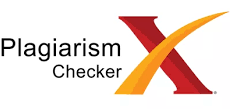PERAN MEDIASI ASIMETRI INFORMASI DAN INSENTIF DALAM KASUS KESENJANGAN ANGGARAN PENDAPATAN ASLI DAERAH
Abstract
In the private sector budget slack are more dominant due to economic motivational factors such as incentives.In the local government sector there are organizations that operate as profit centers and can be assumed to be the same as the private sector.This study purpose to show empirical evidence about the mediation of information asymmetry and incentives in the phenomenon of budget slack in the Locally-Own Source Revenue Plan.Data collection techniques using primary data.The sample uses Echelon IIIa and IVa officials who work in local government institutions, namely the bureaucrats for collecting local revenue. This study results information asymmetry mediate tothe relationship of participation to budget slack.While incentives do not mediate to he relationship of information asymmetry to budget slack. Results of this study provides empirical evidence that economic factors arenot encourage of budget slack in the local government sector
Keywords
Full Text:
PDFReferences
Anthony, R.N dan Govindarajan, V. 2005. Management Controls System, Edisi 11, penerjemah: F.X. Kurniawan Tjakrawala, dan Krista. Jakarta. Penerbit Salemba Empat.
Anthony, Robert N dan Govindarajan, Vijay. 2007. Management Control System 12 Edition. New York: McGraw-Hill Education.
Bento, A., & Ferreira White, L. (2006). Budgeting, performance evaluation, and compensation: a performance management model. In Advances in Management Accounting (pp. 51-79). Emerald Group Publishing Limited.
Brownell, P. 1980. Participation in the Budgeting Process: When it Works and When it Doesn’t. Journal of Accounting Literature. Vol. 1. Hal. 124 – 153.
Chow, C. W., Cooper, J. C., & Waller, W. S. 1988. Participative budgeting: Effects of a truth-inducing pay scheme and information asymmetry on slack and performance. Accounting Review, 111-122.
Christensen, J. 1982. The determination of performance standards and participation. Journal of Accounting Research, 589-603.
Douglas, P., dan Wier, B. 2000. Integrating Ethical Dimensions into a Model of Budgetary Slack Creation. Journal of Business Ethics,28(3), 267-277. Retrieved from http://www.jstor.org/stable/25074417
Dunk, A. 1993. The Effect of Budget Emphasis and Information Asymmetry on the Relation between Budgetary Participation and Slack. The Accounting Review, 68(2), 400-410. Retrieved from http://www.jstor.org
Falikhatun. 2007. Interaksi Informasi Asimetri, Budaya Organisasi dan Group Cohesiveness dalam Hubungan antara Partisipasi Penganggaran dan Budgetary Slack (Studi Kasus pada Rumah Sakit Umum Daerah se Jawa Tengah. SNA X, No. 25,1-24.
Gibran, J. M., & Sekwat, A. 2009. Continuing the Search For a Theory of Public Budgeting. Journal of Public Budgeting, Accounting & Financial Management, 21(4), 617.
Gomez-Mejia, L., & Wiseman, R. M. 1997. Reframing executive compensation: An assessment and outlook. Journal of Management, 23(3), 291-374.
Gudono. 2015. Analisis Data Multivariat. BPFE Universitas Gajah Mada.
Gudono. 2009. Teori Organisasi. Sleman (DIY): Pensil Press.
Halim dan Kusufi. 2014. Teori, Konsep, dan Aplikasi Akuntansi Sektor Publik. Jakarta. Salemba Empat.
Hartono, Jogiyanto. 2011. Structural Equation Modeling berbasis varian dalam penelitian bisnis. Yogyakarta. UPP STIM YKPN
Harrell, A., dan Harrison, P. 1994. An incentive to shirk, privately held information, and managers' project evaluation decisions. Accounting, Organizations and Society, 19(7), 569-577.
Jensen, M. C., & Meckling, W. H. (1976). Theory of the firm: Managerial behavior, agency costs and ownership structure. Journal of financial economics, 3(4), 305-360.
Lowe, E.A., dan Shaw, R.W. 1968. An Analysis of Managerial Biasing: Evidence from the Company’s Budgeting Process. Journal of Management Studies (October): 304–15.
Lukka, K. 1988. Budgetary Biasing in Organization: Theoritical Framework and Empirical Evidence. Accounting Organization and Society 13.pp 281-301.
Merchant. K. A. 1985. Budgeting and Propensity to Create Budgetary Slack. Accounting, Organization, and Society.
Milani. K. 1975. The Relationship of Participation in Budget Setting to Industrial Supervisor Performance and Attitudes: A Field Study. The Accounting Review.
Onsi, M. 1973. Factor Analysis of Behavioral Variables Affecting Budgetary Slack. The Accounting Review, 48(3), 535-548. Retrieved from http://www.jstor.org/stable/245151
Pepper, Alexander., Gore, Julie. 2012. Behavioral Agency Theory: New Foundation for Theorizing About Executive Compensation. Journal of Management Vol 41, Issue 4, pp. 1045-1068.
Pope, P.F. 1984. Information of Asymmetric in participative budgeting: A Bargaining Approach. Journal of Business Finance and Accounting 11 (Spring). Pp. 41-59
Peraturan Pemerintah Nomor 69 Tahun 2010
Schiff, M., dan Lewin, A. Y. 1970. The Impact of People Budgets. The Accounting Review.
Shields, J. F., dan Shields, M. D. 1998. Antecedents of participative budgeting, Accounting, Organizations and Society, 23, (1), 49-76
Siegel, G. dan Marconi, H.R. 1989. Antecedents and Consequences of participate budgeting: Evidence on the effects of asymmetrical information. Journal of Management Accounting Research. Sarota: Vol. 5. Pp.265.
Siegel, G. dan Marconi, H.R. 1989. Behavioral Accounting. South Western Publishing, Co. Cincinnati, OH.
Young, S.M. 1985. Participative Budgeting: The effect of Risk Aversion and Asymmetric Information on Budgetary Slack. Journal of Accounting Research. Auntum 23: pp:829-842.
DOI: http://dx.doi.org/10.12928/optimum.v10i1.15757
Refbacks
- There are currently no refbacks.

This work is licensed under a Creative Commons Attribution-ShareAlike 4.0 International License.
Optimum: Jurnal Ekonomi dan Pembangunan
Fakultas Ekonomi dan Bisnis Universitas Ahmad Dahlan
Kampus 1 Jalan Kapas 9 Yogyakarta 55166 INDONESIA
Phone: +62-274-563515
E-mail:optimum@uad.ac.id
p-ISSN:1411-6022 | e-ISSN: 2613-9464
This work is licensed under a Creative Commons Attribution 4.0 International License





